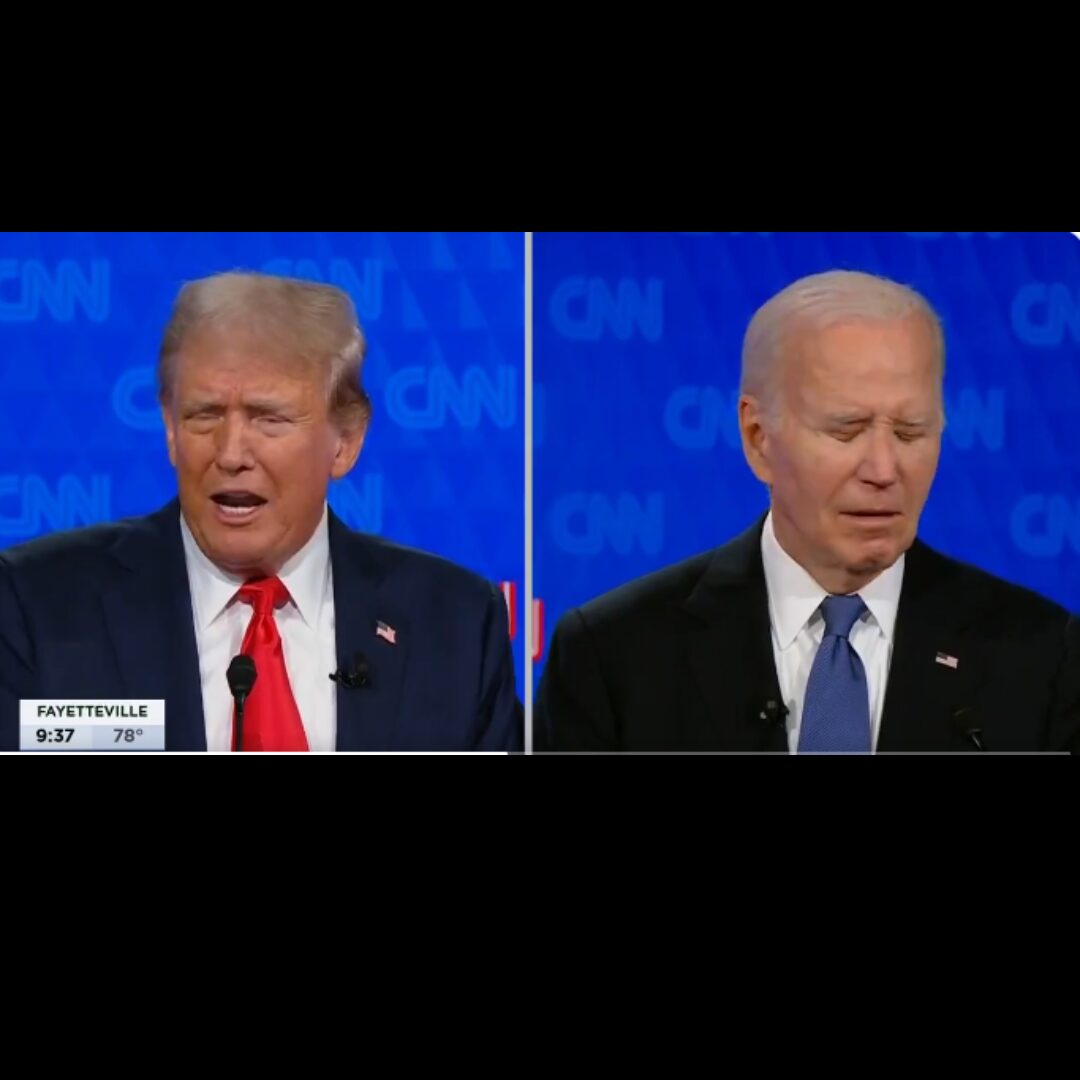During the 2024 United States presidential debates, former President Donald Trump made headlines once again with his controversial remarks.
This time, he criticized President Joe Biden, describing him as a ‘weak Palestinian’. The comment has sparked a flurry of reactions from political figures, analysts, and the public alike.
The Debate: Setting the Stage
Trump vs. Biden: A Heated Exchange
In a highly anticipated 2024 United States presidential debate, Donald Trump and Joe Biden clashed on numerous issues, ranging from foreign policy to domestic affairs.
As expected, the debate was filled with sharp exchanges and pointed criticisms. Trump, known for his blunt and often provocative rhetoric, did not hold back in attacking Biden’s policies and leadership style.
The Controversial Comment
The moment that grabbed the most attention was when Trump referred to Biden as a ‘weak Palestinian’. Trump’s exact words were, “Joe Biden is perceived as weak, like a weak Palestinian leader who can’t stand up to pressure.” This statement immediately set off a wave of reactions across the political spectrum.
Understanding the Context
Trump’s History of Controversial Statements
Trump is no stranger to controversy. Throughout his political career, he has made numerous statements that have sparked outrage and debate. His latest comment about Biden is in line with his usual strategy of using provocative language to draw attention and make headlines.
The Implication of ‘Weak Palestinian’
The term ‘weak Palestinian’ carries significant political and cultural connotations. Palestinians have long been embroiled in a struggle for statehood and autonomy, often perceived as being oppressed or marginalized. By comparing Biden to a ‘weak Palestinian’, Trump aimed to portray Biden as ineffective and unable to handle the pressures of leadership.
Trump to Biden: “He’s become like a Palestinian. They don’t like him because he’s a very bad Palestinian. He’s a weak one.” pic.twitter.com/HkSsw6vzPZ
— philip lewis (@Phil_Lewis_) June 28, 2024
Also Read: Trump Slams Ukraine’s President Zelensky as ‘Greatest Salesman’ Over U.S. Aid
The Broader Implications
Impact on U.S.-Palestinian Relations
Trump’s comment could have broader implications for U.S.-Palestinian relations. During his presidency, Trump took several controversial steps regarding the Israeli-Palestinian conflict, including recognizing Jerusalem as Israel’s capital.
His latest comment might further strain the already tense relations between the U.S. and Palestinian authorities.
Effect on Biden’s Image
For President Biden, being labeled as ‘weak’ by Trump poses a challenge to his leadership image. Biden’s team has been quick to respond, emphasizing his strength and resolve in dealing with both domestic and international issues. However, Trump’s comment may resonate with some voters, potentially impacting Biden’s approval ratings.
Also Read: The Best U.S. Vacation Spots
A Closer Look at U.S. Foreign Policy
Trump’s Foreign Policy Legacy
Trump’s foreign policy was marked by a series of bold and often controversial moves. From negotiating with North Korea to withdrawing from the Iran nuclear deal, Trump’s actions have left a lasting impact on the global stage.
His approach to the Israeli-Palestinian conflict, in particular, was characterized by strong support for Israel, which earned him both praise and criticism.
Biden’s Approach to Foreign Affairs
In contrast, Biden has sought to rebuild alliances and take a more measured approach to foreign policy. His administration has re-entered international agreements and emphasized diplomacy over unilateral actions.
However, Trump’s criticism highlights the ongoing debate over the effectiveness and perception of Biden’s foreign policy.
Conclusion
Donald Trump’s comparison of Joe Biden to a ‘weak Palestinian’ has reignited debates about leadership, foreign policy, and political rhetoric in the United States.
While the comment has drawn sharp criticism from many quarters, it also underscores the deep divisions in American politics.
As the U.S. navigates its role on the global stage, the debate over leadership and strength will undoubtedly continue.
